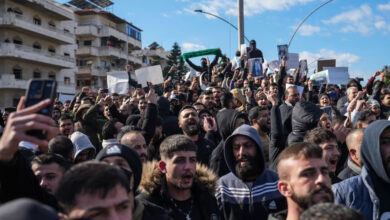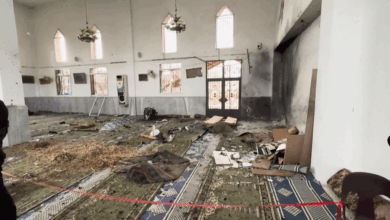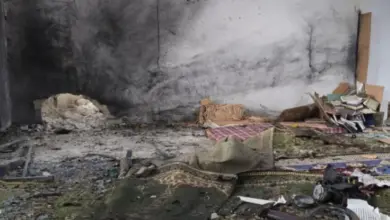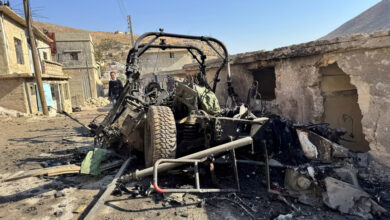US Secretary of State John Kerry said that the United States is exploring ways to end Syria's increasingly bloody conflict as the White House defended its refusal to arm rebels there.
The decision not to arm rebels was apparently a divisive one in President Barack Obama's first term, with several top officials urging more strident action to tip the military balance on the ground against the Damascus regime.
Kerry, speaking at his first press conference since taking over as the top US diplomat, steered clear of saying whether the United States would reconsider arming the rebels now, as the bloody conflict rages through its 22nd month.
Some 60,000 people have died since demonstrators first took to the streets almost two years ago to protest President Bashar al-Assad, as the conflict has escalated into a civil war that has displaced some three million people.
It was revealed this week that the White House had rejected secret plans drawn up last summer by Kerry's predecessor, Hillary Clinton, and former CIA chief, General David Petraeus, to arm the Syrian opposition.
"It is a very complicated and very dangerous situation," warned Kerry, who only took over as America's top diplomat late last Friday.
"There's too much killing and there's too much violence and we obviously want to try to find a way forward," he said, adding that everybody in the administration was "deeply distressed" by the continued violence in Syria.
"We are evaluating now, we are taking a look at what steps, if any, diplomatic particularly, might be able to be taken in an effort to reduce that violence and deal with that situation."
So far the United States is the largest single donor of aid, having pledged some US$365 million to help the Syrian opposition and refugees. Some 760,000 people have fled the country and another 2.5 million are internally displaced.
But, wary of pouring more weapons into a volatile conflict, Washington has so far refused to arm the Syrian opposition, limiting itself to non-lethal support such as communications equipment.
News that other senior cabinet members, including Pentagon chief Leon Panetta and chairman of the Joints Chiefs of Staff General Martin Dempsey, had supported the Clinton-Petraeus plan, further fuelled the notion of major differences over what to do about Syria.
Kerry said he was not aware of what decisions had been made before he took over as secretary of state a week ago, stressing he was focused on the future.
The White House meanwhile defended its decision to reject the plan to arm the Syrian opposition.
Spokesman Jay Carney said the US priority was to ensure that weapons provided by Americans did not end up in the wrong hands and create more danger for "the US, the Syrian people or for Israel."
Analysts say however that had the US administration pressed ahead with the proposals to arm the rebels several months ago, the situation in Syria today might be very different.
"I firmly believe you have to change the military balance on the ground even for a political solution. The fact is that this regime, and Assad, is not going to do himself out of a job," Salman Shaikh, director of the Qatar-based Brookings Doha Center, told AFP.
"If the decision had been taken last summer, we may well be in a situation by which the Free Syrian Army and the more professional elements could have become much more capable themselves by now in organizing the resistance."
Now a strong "disillusionment" is setting in among the opposition, many of whom had been primed to expect a lifting of the US arms ban.
"Everyone's conflicted, these are tough decisions. But sometimes you have to make the tough decisions," Shaikh added.
Obama told the New Republic magazine last month he constantly wrestled with issues of where and when America should intervene.
"In a situation like Syria, I have to ask, can we make a difference in that situation? Would a military intervention have an impact? … What would be the aftermath of our involvement on the ground? Could it trigger even worse violence or the use of chemical weapons?"
"Those are not simple questions. And you process them as best you can."




